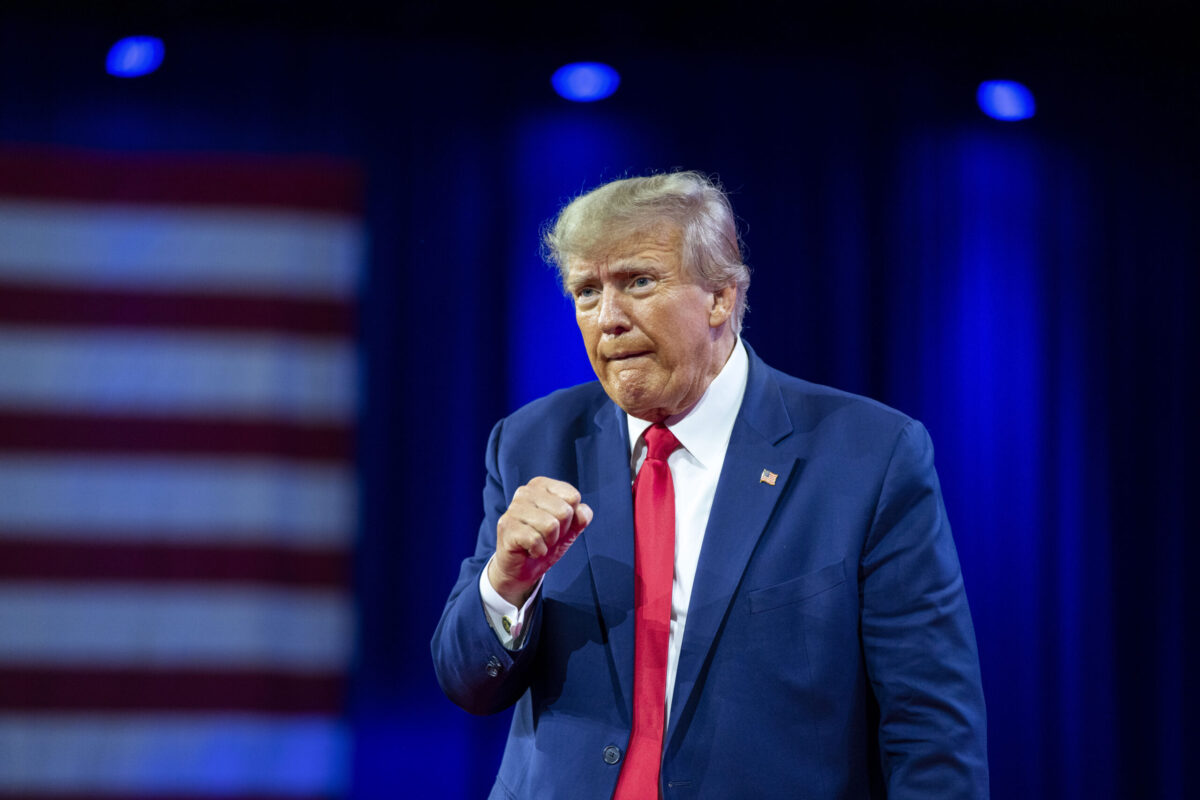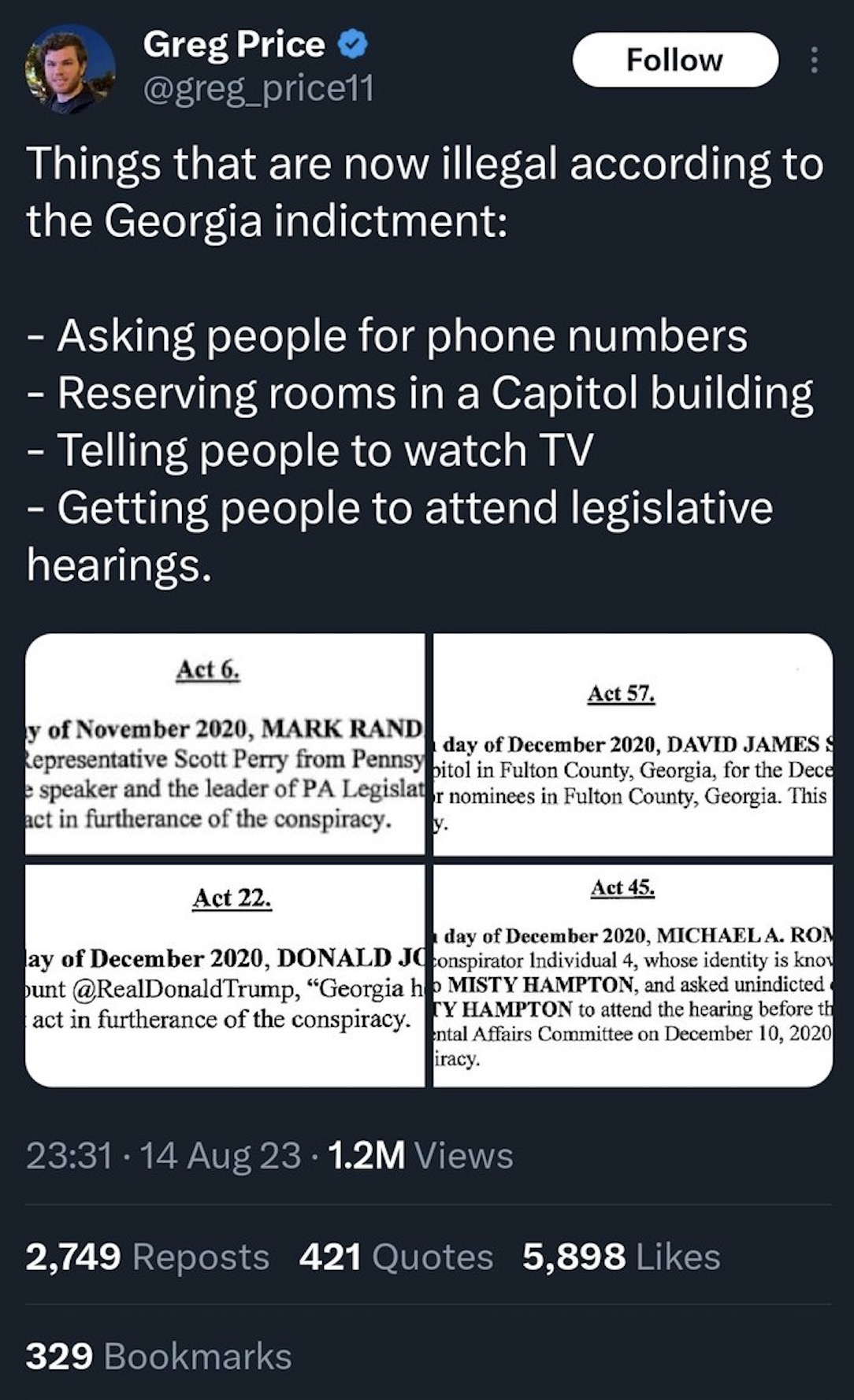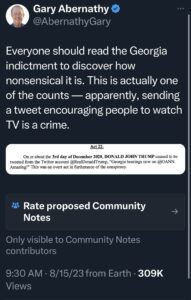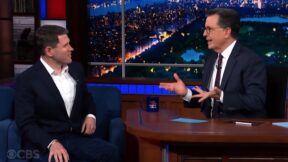The Final Frontier of Trump Defenses Is Just Refusing to Understand How Law Works

AP Photo/Alex Brandon
Monday evening’s news that former President Donald Trump was being indicted again triggered the usual suspects to rush to defend the ex-president as a victim of a “weaponized” justice system that was trying to unfairly interfere with his re-election bid.
That’s all to be expected, especially in this dopamine-fueled era of 24-hour cable news and social media infamy.
But after the 98-page indictment was unsealed, many of those Trumplican defenders pivoted to a defense that was surpassed in its dishonesty only by its ridiculousness.
A Georgia grand jury indicted Trump and 18 others (including former New York City Mayor and Trump attorney Rudy Giuliani, former White House Chief of Staff Mark Meadows, former Assistant Attorney General Jeffrey Clark, and several lawyers who have represented Trump and his campaign, including Jenna Ellis, Sidney Powell, and John Eastman) for their alleged efforts to overturn the 2020 election in that state. In the 41 count, 98-page indictment, the thirteen counts specifically against Trump include violation of the Georgia RICO Act, filing false documents, false statements and writings, solicitation of violation of oath by public officer, conspiracy to commit impersonating a public officer, conspiracy to commit forgery in the first degree, conspiracy to commit false statements and writings, and conspiracy to commit filing false documents.
This Georgia indictment is Trump’s fourth this year, after the Manhattan one for the alleged hush money payments to Stormy Daniels and the two federal indictments for the classified documents seized by the FBI at Mar-a-Lago and alleged efforts to overturn the 2020 election.
Conservative activist Greg Price weighed in late Monday evening, posting a tweet that included screenshots of the indictment with a caption that said “Things that are now illegal according to the Georgia indictment” included “Asking people for phone numbers,” “Reserving rooms in a Capitol building,” “Telling people to watch TV,” and “Getting people to attend legislative hearings.”
Price has since deleted the tweet without explanation, but I captured screenshots on my phone and an archived link to the tweet and images is available here.

Another tweeted-and-deleted post came from Washington Post columnist Gary Abernathy, who called the indictment “nonsensical,” and like Price, included a screenshot of a section of the indictment to claim that “apparently, sending a tweet encouraging people to watch TV is a crime.”
This tweet was not captured by the Internet Archive but I did capture a screenshot, below:

Screenshot via Twitter.
Similar hot takes were offered by Charlie Kirk and the Libs of Tik Tok account.
It has become increasingly popular in our Overly Online Times for non-lawyers to emphatically weigh in on legal topics, a nearly constant illustration of the Dunning-Kruger Effect. But no law degree is necessary to puncture the balloon of these commentators’ aggressively fetid mendacity.
Just like Trump’s most recent federal indictment from Special Counsel Jack Smith spelled out that the ex-president’s exercise of his free speech rights were not crimes, but his actions to interfere (and conspire with others to interfere) with the election results were, none of these lines in the Georgia indictment that describe Trump as sending tweets, “watching TV,” and so on are identified as crimes.
As the plain text of the Georgia indictment itself reads over and over: “This was an overt act in furtherance of the conspiracy.”
Not once does the indictment say these things are crimes. Not once. The things that are crimes are the 41 counts listed in the text, as are listed in all-caps bold print on the first four pages of the indictment and then laid out in explicit detail in the 90-plus pages that follow.
Criminal conspiracy charges like RICO often require the prosecutors to prove one or more (depending on the jurisdiction) “overt acts” in furtherance of the agreement between the co-conspirators. The co-conspirators don’t have to all be in contact with each other or even know each other, and the overt acts don’t have to be crimes themselves. Furthermore, the co-conspirators don’t all have to commit an overt act or even be charged with any crime for a criminal conspiracy to exist (that’s why you’ll see “unindicted co-conspirator [number]” listed in the various Trump indictments).
As New York Times columnist and attorney David French wrote in response to Abernathy’s deleted tweet, “Not every overt act in furtherance of a conspiracy is a crime. Buying duct tape, say, isn’t a crime, but it can be an overt act in support of a kidnapping. The actual crimes are clearly specified in the indictment.”
French’s fellow attorney and anti-Trumper George Conway was less diplomatic, calling Price an “Idiot.”
“That’s not what the indictment charges, and that’s not how conspiracy law works.”
This is not complicated.
As countless commentators have pointed out, no one is making buying a ski mask or driving a car illegal on their own, but if you plan a bank robbery with several of your friends, and you buy the ski masks and another friend drives the getaway car after the heist, well, don’t be surprised if all of you end up facing some type of criminal conspiracy charges.
The crime is not buying the ski masks, but the act of buying the ski masks would be presented in court by the prosecutors to prove various elements of the actual criminal charges, including criminal intent, premeditation, identification of the guilty parties (e.g., if you bought the ski masks with your credit card or were spotted on the store’s security cameras making the purchase), and so on.
The Trump defenders who have been promoting these ludicrous claims for the past day either haven’t read the indictment and have no idea what they’re talking about (Kirk seems highly likely to fall into this category) or are assuming their audience won’t bother to read the 98-page indictment, so they can get away with lying about its contents.
They’re either stupid or they think their followers are. But then again, maybe that’s the point. These defenses weren’t designed to hold up in court — they have no reasonable hope of doing s0 — they’re designed to feed the Outrage Machine and drive online traffic to the loudmouths and campaign contributions to Trump. Read it, get mad, don’t ask questions or think too hard.
It’s going to be very interesting to see what happens when Americans get to watch Republican after Republican testify about what happened when Trump went down to Georgia, lookin’ for an election to steal.
This is an opinion piece. The views expressed in this article are those of just the author.
New: The Mediaite One-Sheet "Newsletter of Newsletters"
Your daily summary and analysis of what the many, many media newsletters are saying and reporting. Subscribe now!






Comments
↓ Scroll down for comments ↓